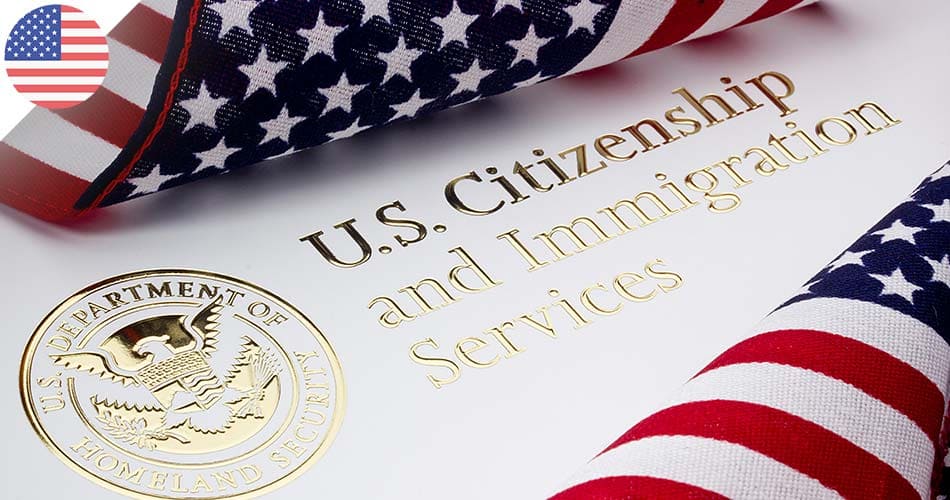US Student Visa Assessment

Overview
If you want to study as a full-time student in the United States, you usually need a student visa.
There are two types of nonimmigrant visas for people who wish to study in the United States.
These visas are commonly referred to as F and M visas. You may enter the F-1 or M-1 category if you are enrolled in an "academic" education program/language training program/or vocational training program and your school must be accredited by Immigration and Customs Enforcement for the Student and Exchange Visitor Program , also you must have a working knowledge of English or have taken a course that will improve your English.
You must have sufficient funds to support yourself to complete your proposed program of study and you must have a residence abroad that you do not intend to give up.
-
F-1 Student Visa
The F-1 Visa (Academic Student) allows you to enter the United States as a full-time student at an accredited college, university, seminary, conservatory, academic high school, elementary school, or other academic institution or in a language training program. You must be enrolled in a program or course of study that culminates in a degree, diploma, or certificate and your school must be authorized by the U.S. government to accept international students.
-
Who is eligible for the F1 Student Visa?
If you are an international student and want to study in the United States, you can apply for an F1 student visa. It is the most popular type of student visa and you can study any course you want at colleges, universities and high schools in the US as long as they accept your application. The institution you will attend must be accredited by the Student and Exchange Visitor Program (SEVP).
-
How to apply for the F1 Student Visa?
In order for your F1 student visa application to be accepted, you must meet the following criteria: Be admitted as a student at a US institution accredited by SEVP and being a full-time student, also you must have a good knowledge of English, Have sufficient funds ready to finance your studies and stay in the US Hold a valid passport. You must also be able to demonstrate that you have nonimmigrant intent, which means that you are willing to leave the United States after graduation. To prove this, you need to demonstrate strong ties to your home country.
-
M1 Student Visa
he M1 Visa is a non-immigrant visa that allows foreign pupils to come to the US to take part in vocational, non-academic studies. While on the M1 Visa students cannot register for academic courses. If you would like to come to the US to study at an academic institution, you should consider applying for the F1 Student Visa instead. Those who come to the US on the M1 Visa can study on a part-time basis for up to six months but they are not allowed to seek employment and work. To be eligible for the M1 Visa, you have to be able to prove that you have enough funds to cover all expenses during your stay in the US. In most cases, the M1 Visa is initially granted for a period of one year.
-
What are the requirements for the M1 Visa?
If you would like to apply for the M1 Visa, you have to meet the following requirements: Be accepted at an institution from the list published by the Student Exchange Visitor Program (SEVP) Be proficient in English – you have to be able to understand lectures and coursework. To prove your proficiency, you can take a standardized English proficiency test such as TOEFL or IELTS Be able to prove your non-immigrant intent – you can do it by showing that you can prove strong ties to your home country that will make you return once your visa expires. Have enough funds to cover your expenses in the US – you will need to submit bank statements or other evidence to confirm your financial status.
UK Student Visa Assessment
Overview
The (General) Tier 4 student visa was renamed the student visa at the end of 2020.
A number of changes have been made to student visas, including the post-study option from June 2021.
To be eligible for a student visa, you must have received a confirmation of enrolment and obtained a minimum of 70 points in the points-based immigration system.
If you are over 16 and you have a place on a course with an approved student sponsor, you can apply for a student visa to study in the UK.
You must have enough money to support yourself and pay for your courses and be able to speak/read/write and understand English.
If you are not over 16 , you will need parental consent - you will need to provide proof when you apply.

-
UK Student Visa Application
From 5 October 2020, the Tier 4 (General) Student Visa has been replaced by the 'Student Visa'. This applies to EU/EEA citizens wishing to enter the country after 1 January 2021. If you want to study in the UK, you will need to apply for a student visa. In a post-Brexit environment, both EEA nationals and non-EEA nationals must have an unconditional offer letter from a licensed sponsor to be eligible for a visa. Under the new postgraduate visa pathway, those who complete an approved course in the UK can stay in the country to live, work and seek employment for up to two years. Graduates can do this for up to three years.
-
Applying from outside the UK
The earliest you can apply for a visa is 6 months before you start your course. You’ll usually get a decision on your visa within 3 weeks.
-
Applying from inside the UK
The earliest you can apply is 3 months before your course starts. You must apply before your current visa expires. Your new course must begin within 28 days of your current visa expiring. You’ll usually get a decision within 8 weeks.
-
Staying longer in the UK
You may be able to:
– extend your visa if you’re eligible, for example to continue your studies in the UK
– switch to a Student visa from another visa if you’re already in the UK
– switch to a Graduate visa to stay in the UK for at least 2 years after successfully completing your course
-
What is the English language requirement?
If you want to study in the UK, you must be able to demonstrate a certain level of English language ability. Those studying below degree level need to prove a level of B1, whereas those studying at degree level or above must have a B2 level. The most common way of demonstrating your English ability is to take a SELT English language test. The four approved SELT test providers are Trinity College London, ITELTS SELT Consortium, LanguageCert and Pearson Education Ltd.
-
How long you can stay
How long you can stay depends on the length of your course and what study you’ve already completed in the UK. If you’re 18 or over and your course is at degree level, you can usually stay in the UK for up to 5 years. If it’s below degree level, you can usually stay in the UK for up to 2 years.
-
Staying longer in the UK
You may be able to: – extend your visa if you’re eligible, for example to continue your studies in the UK – switch to a Student visa from another visa if you’re already in the UK – switch to a Graduate visa to stay in the UK for at least 2 years after successfully completing your coursei
-
When you can travel to the UK
You can arrive before your course starts. This can be either: – up to 1 week before, if your course lasts 6 months or less – up to 1 month before, if your course lasts more than 6 months You must not travel to the UK before the start date given on your visa, no matter when your course starts.
